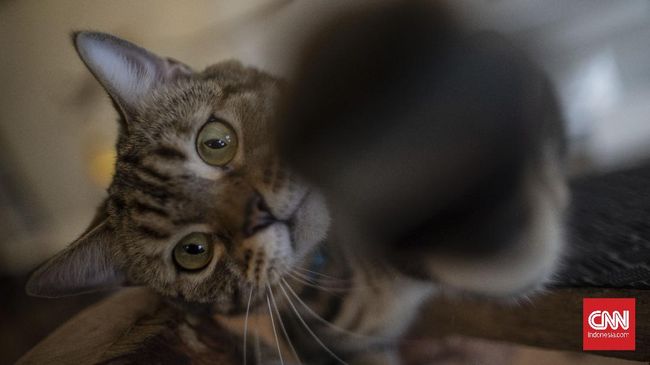Jakarta, CNN Indonesia –
Recent research shows antibodies cat able to ward off re-transmission corona virus SARS-CoV-2, so that the animal is protected from disease Covid-19 for the second time.
That is, the antibodies from cats that have been infected with the corona virus are apparently able to neutralize reinfection of the SARS-CoV-2 corona virus so that the cat is no longer infected with Covid-19.
So, the study’s researchers suggest feline immunity could be a good model for vaccine development.
“This study shows that cats can be a suitable animal model for studying SARS-CoV-2 infection and for advancing the development of vaccines and therapies for use in both animals and humans,” wrote the journal. Proceedings of the National Academy of Sciences (PNAS).
Unfortunately, no one knows how long a cat will maintain strong immunity due to the duration of the study.
Though this can answer whether immunity is only temporary or immunity is able to permanently protect cats from re-infection.
The study was conducted on seven cats and three dogs who were injected with the SARS-CoV-2 virus. The researchers found that, although cats can infect other cats through direct contact, dogs do not spread the virus to one another.
Neither the cats nor the dogs actually developed clinical symptoms of Covid-19 at any point in the study.
Research shows cats have the ability to defend more efficiently against the virus. In research, although they could infect one another, cats were able to build a very strong defense against reinfection.
Cats exposed to the virus become immune, this immunity is much stronger than the immune response observed in other species tested in a laboratory environment.
“We report that cats are highly susceptible to infection, with prolonged oral and nasal transmission of the virus that are not accompanied by clinical signs, and are capable of transmitting direct contact to other cats,” write the investigators.
On the other hand, it is highly unlikely that dogs or cats will spread Covid-19 to humans. Mink animals are the only ones believed to be able to transmit the virus directly to humans after a series of outbreaks on mink farms in Europe.
However, it is possible for humans to transmit the virus to animals in a process known as “reverse zoonosis.”
The new findings support current Canadian guidelines on domestic animals showing that cats can infect other cats, but dogs cannot infect other dogs.
The research also supports calls from public health authorities to avoid all contact with pets if their owners are infected with Covid-19.
“Infected domestic cats should not be allowed to roam freely outdoors to prevent the potential risk of spreading the infection to outdoor cats or other wildlife,” write the researchers.
Previous research has shown that cats have a strong natural immune response to viruses and can pass infections from one animal to another.
(jnp / eks)
– .


